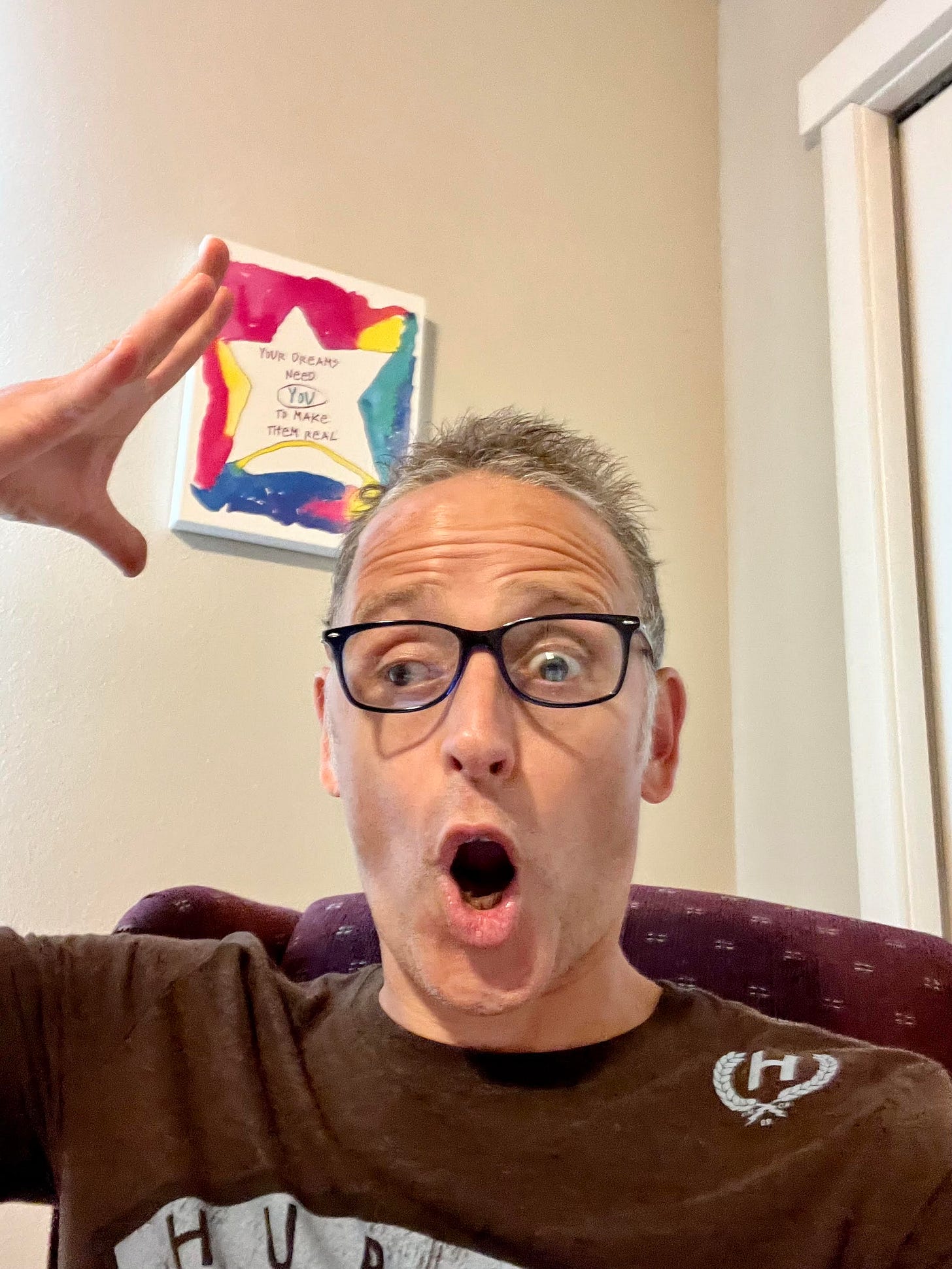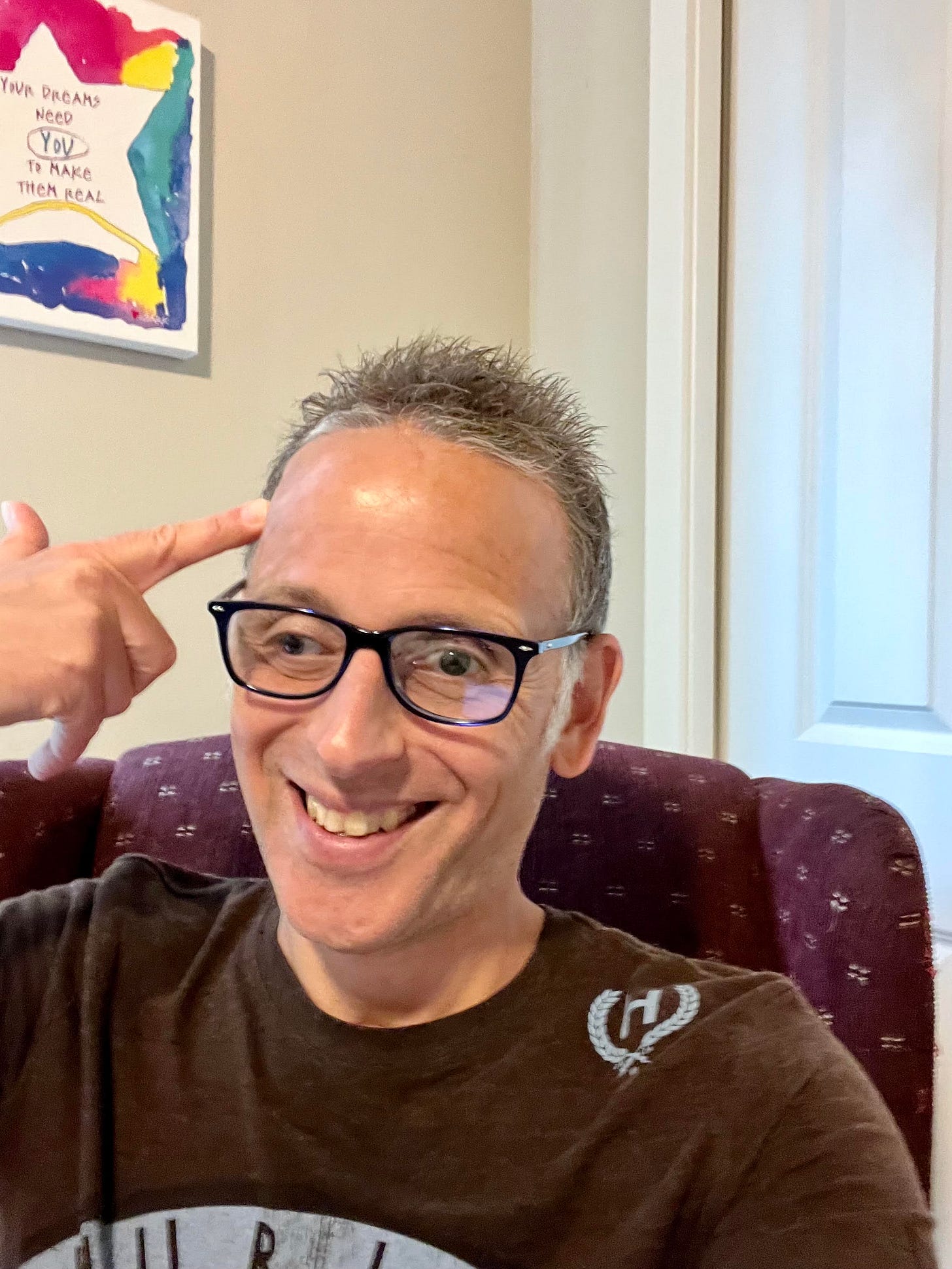Our Thoughts Don’t Define Us
We thrive when we let go of our drive to be “right”, in favor of our deeper desire to be connected with others.
One of the greatest gifts a therapist gives us as clients, is, perspective. Amidst life’s storms, they help us pause, step-back, and view things from a bigger, wiser, and more loving angle. Throughout the long evolution of what turned out to be my second divorce, I saw a therapist named Rhonda. One of our hottest topics was the “disagreements” my ex (let’s call her Kate) and I had. Generally speaking, during these spats, Kate would get fiery and go on the offensive, while I leaned cooler and defensive.
Ranting to Rhonda, one day, about the rightness of my way and wrongness of Kate’s, she stopped me in my tracks. Rhonda helped me “take a breath,” step-back, and see things more clearly. She opened my eyes to the following truth: Neither Kate’s Italianesque passion, or my Scandinavian-like reserve were more “right” or “wrong” than the other. Instead, the core problem was addiction. In that, both Kate and I were addicted to our behaviors/beliefs/thoughts, being the right way—over and against other stances.
What is more, Rhonda led me to realize I wasn’t alone in this predicament. She opened my eyes to how: Part of the human condition, is an addiction to being right. More to the point, our compulsion to be correct (which does have an evolutionary, aka survival, advantage to it), by default, leads us to view anyone who disagrees with us as not only incorrect, but “wrong”. Do you know what I mean?
My “mind blown” face :)
It simultaneously thrills, and comforts us—in a world full of complexity, mystery, and uncertainty—to be quite sure we are right about things.
Whether it’s our beliefs, political allegiance/views, stance on LGBTQ+, take on religion, and/or ______, people are quite prone to being hooked on their way of thinking. We are so hardwired to filter and make sense of everything from this lens, there’s even a name for it: Confirmation bias.
Confirmation bias names our predisposition to filter our experiences in such a way, that they “confirm” what we already believe to be true. At its most extreme, even when our lived realities, quite literally fly in the face of our beliefs—our bias/addiction, leads us to rationalize said experiences away! I think here of Kate and my divorce. Even though we’d divided our assets, signed all the documents, and worked all the details out; I was so deeply convinced we would get back together, I truly held on to that fallacy right up until the moment the judge pronounced us done!
More broadly speaking, I think here of our cultural divides, which especially rear their ugly head in American politics. We are so addicted to what we see as the absolute “rightness” of our tribe’s point of view, our vision becomes too clouded to see the ways people different from us are also correct. What is more, we get so caught up in our own rightness—aka self-righteousness—we point our fingers at and demonize those different from us. Can you see the ways this downward spiral plays out in the news, social media, and beyond? I know I’m guilty of falling into this trap.
You have thoughts, but you are not your thoughts. You have a body, but you are not your body. You have emotions, but you are not your emotions.
When I did my initial yoga teacher training, the meditation teacher (Dr. Bali) said something close to this over, and over, and over again. When we step-back” and realize, we can observe and bear witness to our thoughts, body, and emotions, we realize the potent truth of what Dr. Bali taught us. I name it “potent” because, this realization breaks the spell of our addiction to being “right” in our thoughts, body image, and feelings.
Now, it’s important to pause and say: There is right and wrong. But, left or right, conservative or liberal, Republican or Democrat, Christian or non-Christian, white or black, gay or straight, and so on, do not fall into those categories. It’s our addiction to being right, that pushes us to categorize people that way.
I believe this directly connects to what we generally view as addiction, which begs the question: What is addiction? Addiction is a coping mechanism to the complexity of life that feels so sweet—in that it helps us forget life’s messiness—that we have a hard time not repeating it … over and over and over again. In other words, whether it’s our thoughts and beliefs, a drug, binging TV shows, food, shopping, sex, pornography, gossiping, being a victim, even sometimes a belief in God, and/or something else—the things that take us out of reality, that we don’t want to stop doing, are addictions.
Connection and communion with others, is where our addictions to our thoughts, beliefs, rightness, and/or substances, melt away into love.
With all that firmly in mind, it’s important to realize, part of the magical miracle of being human is that we are potential. Each of us is simultaneously like clay and the potter, in that we can continually mold ourselves into ever greater wholeness, wellness, and lovingness—with the help of those around us (and something beyond us), of course!
I bring that up because, you know how when we eat, our bodies brilliantly take the food in, discern which parts are nutritious and which are waste, and then treats them accordingly? The rest of life is the same. In that, we get to consciously digest our lived experiences. Every encounter we have, whether it’s a conversation, a work project, a TV show, a moment of reflection, or ____, offers us some proportion of nutrition and waste. As humans, the blessing and curse is that, it is up to us (with help from friends) to determine and keep what uplifts, while letting go of what drags us down.
Yoga is a practice that enables us to step-back, and decide from a big picture perspective, what in life is nourishment versus waste.
When I teach yoga, I sometimes tell students: The evidence is in, yoga makes us better people. Studies, experience, and science show this to be true. Why? Because of everything I’ve described here, and more. The mental, emotional, physical, and spiritual workout that yoga brings us, strengthens and stretches the totality of us in all the best ways.
Recently, Boca Recovery Center reached out to me to help them share this good news for people addicted to substances. One could truthfully say, they were the spark that lit the fire of this blog! They have a program that uses yoga, and its blessings that I’ve merely touched on above, to help people recover from addiction. If you, or anyone you know, could use some help, they asked me to also pass on their overall website: https://bocarecoverycenter.com/ and 24/7 Helpline: (800) 516-4357
I don’t know about you, but I feel like I could use a deep, cleansing breath now. One that helps exhale my addiction to being right, while inhaling the ways we’re all connected and need one another. So, let’s breath out together for 6 … 5 … 4 … 3 …. 2 … 1. And then inhale love for 6 … 5 … 4 … 3 … 2 … 1.
I hope you feel better, were blessed by this, and please share your thoughts in the comments!
Hugs & Love,
Lang (aka “Dr. Love”)





